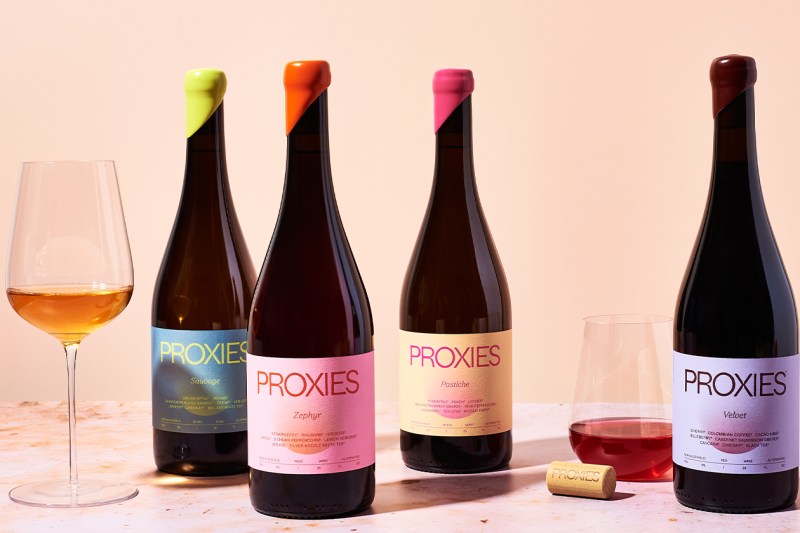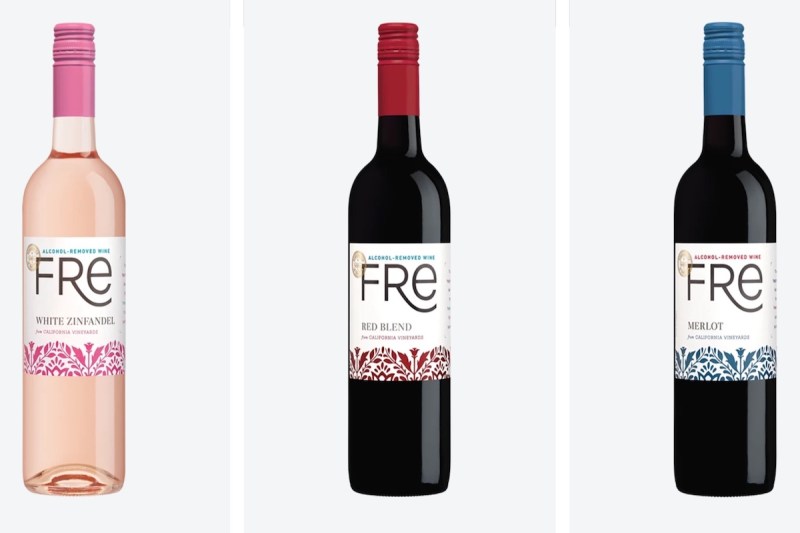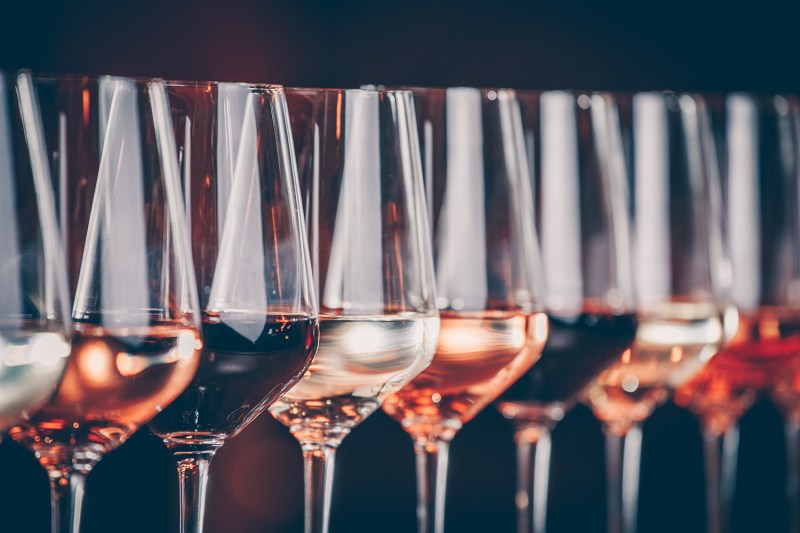Where zero-proof is concerned, wine has always lagged a bit. Often, the non-alcoholic stuff tastes like little more than grape juice. Meanwhile, there are non-alcoholic beers and great mocktail recipes that do a bang-up job representing their boozy counterparts.
How come? Perhaps it’s the patience and complexity that goes into a good bottle of wine, something hard to mimic in the hooch-free realm. Perhaps it just hasn’t been taken too seriously. Whatever the reason, we are happy to report that the tide is changing.
Thanks to some pretty amazing tech and a market that’s thirstier than ever for alcohol-free adult beverages, there are some emerging players turning out something worth swirling and sniffing. Admittedly, the reds are still a bit behind the 8-ball, but the pinks, sparkling, and whites are really coming into their own these days.
Whether you’re simply curious, looking after your health, or are interested for Dry January, here are 18 of the best non-alcoholic wines to try in 2024 (and if you feel like dabbling in the traditional stuff, check out our very best wines list).

Proxies
A bit of a hybrid, Proxies uses ingredients like tea and various herbs and spices in an attempt to match the complexity of many wines. To the brand’s credit, it does a pretty good job. The name is apt, as the liquid represents wine, but isn’t necessarily wine proper.

Lautus
A South African label launched in 2017, Lautus has a good presence in the U.S. market and makes some quality NA white, and sparkling, especially. Look out for the sauvignon blanc and pink bubbly. The brand was founded by a guy with a serious wine resume and a passion for terroir, a recipe for some worthwhile zero-proof vino.

Jøyus
The NA wines of Jøyus have won some significant critical acclaim and are fun, refreshing, and satisfying. Started by a woman tired of toasting with sparkling apple cider, the brand offers some festive wines with mass appeal, made primarily from California fruit.

Dr. Lo
Agreeable German riesling without the alcohol? Indeed, thanks to Dr. Lo, the offshoot of the revered Loosen Brothers label. The beloved Mosel producer makes some highly respectable sparkling and still wines, all based on the famous Rhine varietal.

Kolonne Null
This German producer sources fruit from all over the globe and turns out NA wines from a facility in Berlin. The food-friendly wines do well on the dinner table and have enough substance to pair up with an assortment of dishes.

French Bloom
Brunch fanatics, here you go. This French label specializes in sparkling cuvées — great with lazy Sunday fare and setting you up for zero grog. We like how you can really latch on to both the acidity and lively fruit flavors with every sip, making them great for mocktail mimosas, too.

Fre
A side hustle from the vast Sutter Home label, Fre wines are surprisingly palatable. They won’t blow your mind, but they’ll offer a refreshing alternative to actual hooch. Pack them along to a tailgate or pour them over a casual picnic at the park.

Muri
This label is starting to show up on restaurant lists and somm picks online, and for good reason. While a little more expensive, you get some added details and a decidedly wine-like drinking experience. Fans of natural wines will like these offerings, made in Denmark by a team tied to NOMA and the fine-dining realm.

SipClean
This blend of grenache and cabernet sauvignon is dealcoholized, meaning you hold on to a least some of the wine’s nuance. It’s grape-y, but there are some undercurrents of citrus and berries. And there’s a subtle and clever kiss of carbonation that adds a bit of mouthfeel in place of the usual tannin and alcohol.

Thomson & Scott
Of the affordable sparkling wines in zero alcohol territory, Thomson & Scott’s is among the best. It’s made from organic Chardonnay grown in southern Spain and dealcoholized via vacuum distillation, meaning much of the depth and aromas remain in the finished product.

Kin Euphorics Spritz
A non-alcoholic take on the popular spritz (check out some popular spritz recipes), Kin’s comes in a catchy can and is made with the addition of spices, ginger, and hibiscus. It’s an especially good effervescent sipper in the winter as it has a warm and comforting feel on the palate, despite being served chilled.

Teetotaler
Canadian brand Teetotaler makes some very agreeable wine minus any risk of a hangover. The red is made entirely of Tempranillo and offers ripe cherry notes along with a bit of tannin. The white is made from another Spanish varietal in Airén and is quite refreshing.

Ariel
One of the more popular options, Ariel makes dealcoholized chardonnay and cab sauvignon. The red shows dark fruit and oak, while the white is buttery and made for seared scallops.

Töst
An alt-non-alcoholic wine of sorts, Tost is made with tea, cranberry concentrate, and a few more natural ingredients. There’s a bit of sweetness, countered nicely by some zesty notes.

Pierre Chavin Silhouet
Dubbed a gasified chardonnay, this lightly sparkling wine from France has a remarkable amount of finesse and drinks nicely on its own or even with a little citrus for a zero-proof mimosa.

Leitz
Riesling seems well-suited for the zero-proof realm, with its often natural sweetness and big aromatic qualities. This German producer makes a great sparkling riesling called “Einz Zwei Zero,” semi-sweet with nice apple and honey flavors.

Vignette Wine Country Soda
This outfit out of Northern California makes soda on the surface, but it’s made from quality wine grapes. The end product functions more like a wine, in Burgundian flavors like pinot noir, chardonnay, and rosé.

Sinzero
A Chilean project, Sinzero makes some respectable wines with little to no alcohol (some contain a trace, so check the labels if that’s an issue for you). The reserve cabernet sauvignon and the Brut are especially worthwhile bottles.
Working your way through Dry January? You’re not alone. Check out our favorite non-alcoholic drinks and the best non-alcoholic spirits. Cheers!



